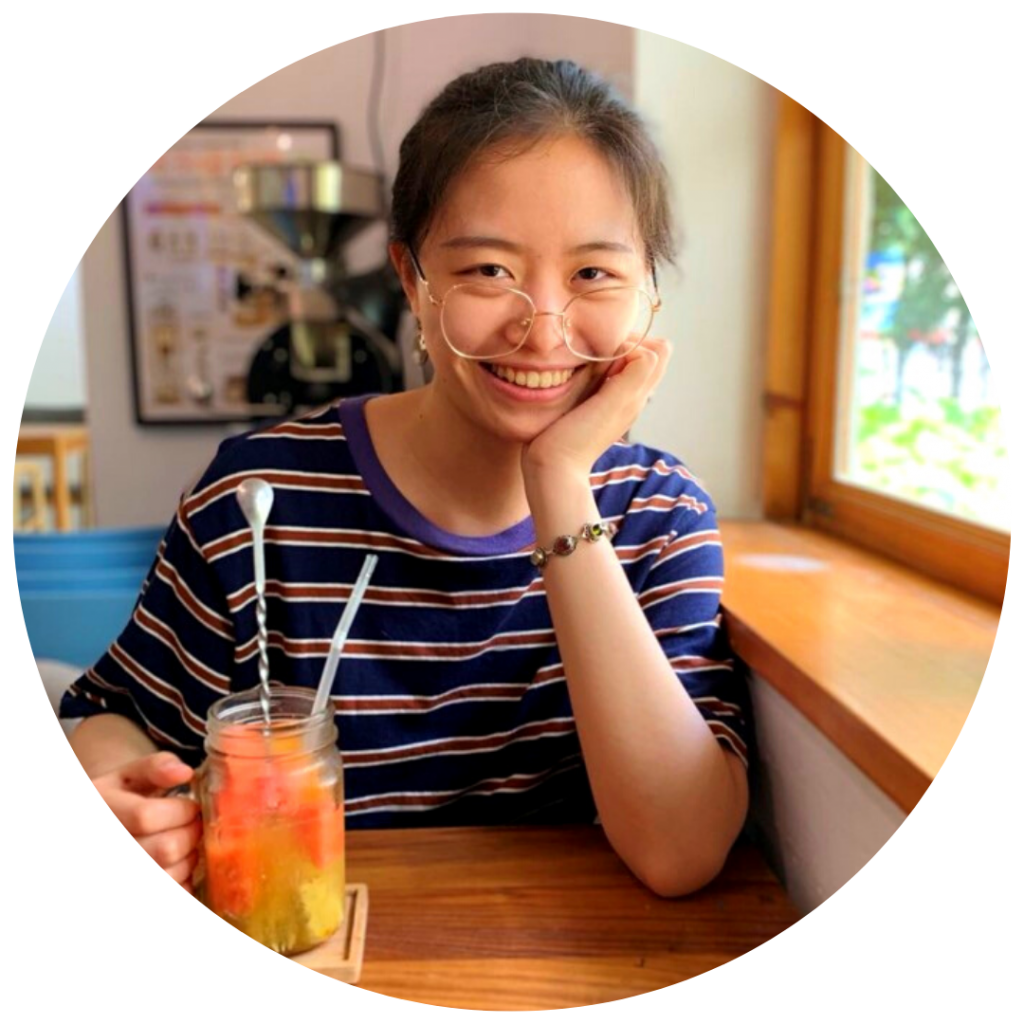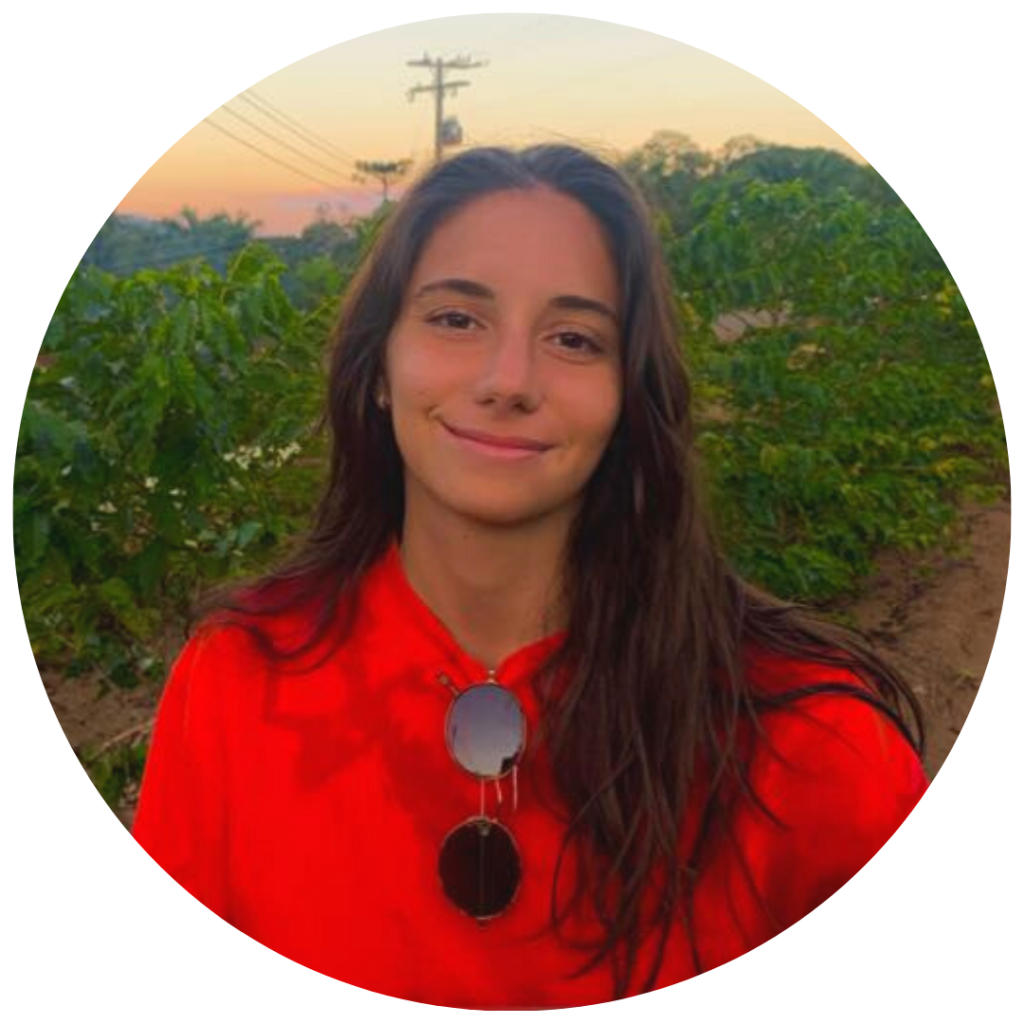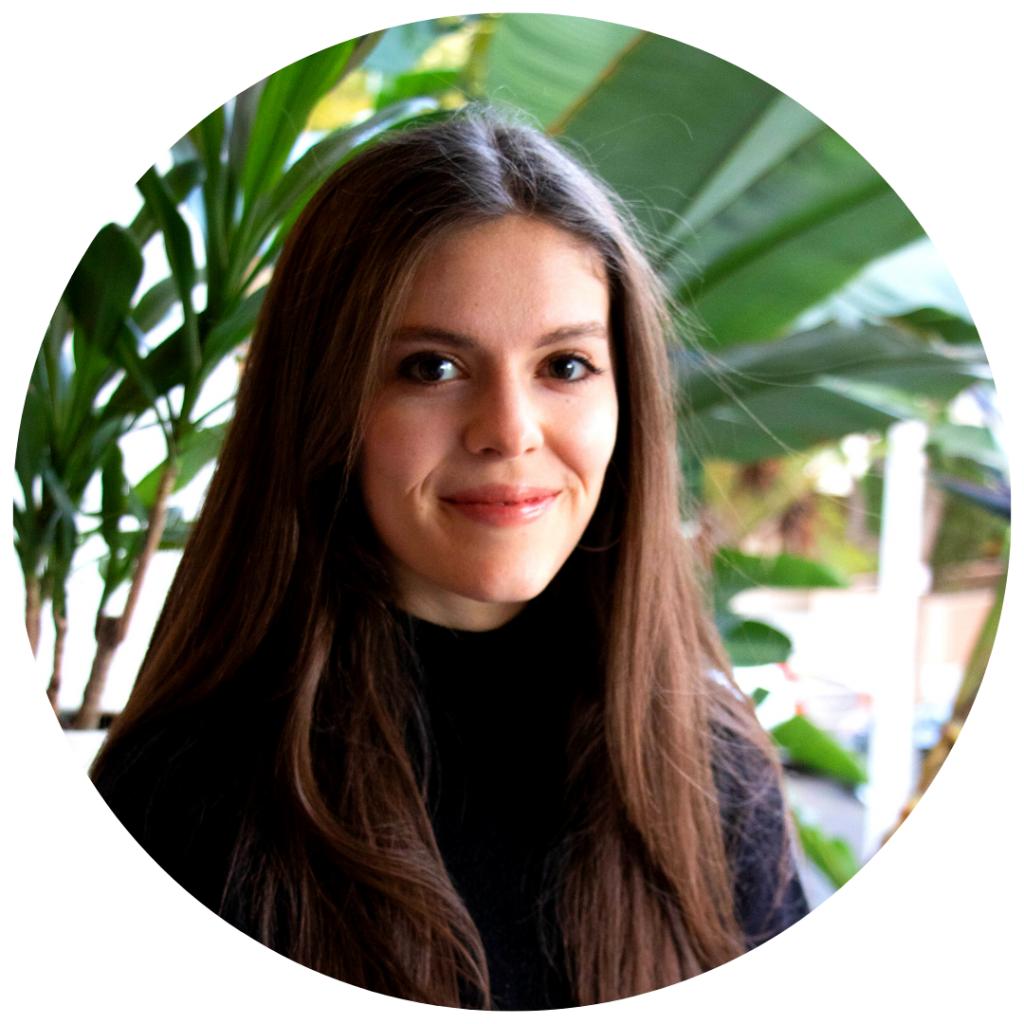We got the pleasure to interview both Yuhan Gao ’21, Claudia Chakmati ’21, and Kali Van Dusen ’21 separately about their internships. Their answers are insightful to the wide field of Media Arts Production.
Yuhan ’21

Video Editor Intern
Claudia ’21

Development Intern
Kali ’21

Literary Intern
Photo Credit: Savannah Berkeland ’21
INTERVIEW
How did you find your internship?
YUHAN: I found my internship on the Handshake website.
CLAUDIA: So far, I’ve done a total of three internships while at Emerson. Because I’m an international student, my internships had to be in connection with my major, VMA, so they’ve all been development and production internships in some capacity. I found my current internship with Echo Lake Entertainment on Handshake; and again with my past two internships as well. Handshake is an excellent tool for Emerson students to filter their search for jobs and internships within their preferred field. It is easy, pragmatic, and useful — I recommend it fully for students searching for the best internships within the entertainment industry. Unlike other online job posting sites, Handshake truly does show you the best opportunities out there.
KALI: I found my internship through Handshake! I applied to a development internship with Atlas Entertainment and was referred to Atlas Literary where I continued to interview before getting hired.
How long is your internship?
YUHAN: My internship is four months. 3 days a week.
CLAUDIA: My Development & Management internship at Echo Lake will last a total of 5 months, until mid-May, after the end of the semester. My plan is to try and extend the internship into a full-time job offer, since I graduate this semester.
KALI: My internship is around 4 months long.
Where is your internship taking place? All Virtual? Hybrid? How do you feel about it?
YUHAN: It’s virtual. I think it’s pretty good. I’m glad that I don’t need to commute and can stay at home. And my working experience is all good with the remote mode. But it’s kind of disappointing that I have less chance to meet the people in the company.
CLAUDIA: My internship is currently totally remote, with a couple of employees going into the office everyday for front desk duties. There is talk of resuming in-person activities gradually, and optionally for interns, throughout this semester. If that is the case, I would go to the office a couple of days a week in alternation with other interns in the program.
I like remote work, because you can build your own hours and are exposed to opportunities you wouldn’t have had a chance to explore otherwise. Yet, if the prospect of in-person activities becomes an actual possibility in the foreseeable future, I would prefer working in-person. In-person, you get the full interaction with your team and your bosses, that is somewhat limited through Zoom calls and Slack messages. As an intern, you can make yourself more invaluable if you are physically present in their work space; which is likewise harder to do through Zoom. And although Zoom has its limitations, it is ultimately as valuable as you make it. This remote internship is the best I’ve experienced so far within virtual internships because of the way the company uses Zoom and Slack to communicate. Through Slack, the interns create their own group for ‘dumb’ questions and have channels with their bosses too for quick conversations. Through Zoom, the company sets up weekly intern lunches with every executive in the company as a way for us to ask questions and get to know what they do. Us interns have initiated virtual Happy Hours and Zoom meetings outside of work hours as well to get to know each other. Apart from your bosses, knowing your intern class is essential: you will be each others’ collaborators and network for the future – start the connection now.
KALI: All virtual! Plenty of communication platforms like Slack or Microsoft Teams, and lots and lots of Zoom.
I have actually only ever worked remote internships so I consider myself pretty fluent in the environment! I enjoy being able to work efficiently from home and my supervisor always makes sure I understand my assignments, which I appreciate. Of course, nothing beats working in an actual office but I also feel incredibly grateful to be able to learn and enjoy my internship even with the current remote work environment!
What does your daily routine look like?
YUHAN: I work every Wednesday Thursday and Friday from 9am pst to 6pm pst. I have a meeting with my supervisor every Wednesday morning, and he will tell me what to do for the day or for the week. I need to update my working progress twice with him at 1pm pst and 6pm pst everyday. I’m responsible for video editing, motion graphics design, poster designs, and script writing of some short videos. My most favorite part should be editing and motion graphics designs, since they are the most familiar work for me.
CLAUDIA: During my work days, which run through 9.30am-6.30pm, I usually go into Slack for any important messages for the day before it starts and then go straight into our production meetings with the executives. Interns are allowed to sit in on meetings in this internship, which for me, makes all the difference. Personally, a production internship that solely sends you coverage to be completed is not so much a learning experience as it is a free-labour opportunity for them. Watching meetings and how executives communicate, what they communicate, has been far more fulfilling. After these meetings, which usually take place first thing in the morning, I work on coverage I’ve been requested to do after or before the meeting. If I’m not doing coverage, I either compile talent, producer, director lists or work within the management branch of the company.
KALI: Around 9:30am I check in with my supervisor for the day and get updated on any incoming assignments. Then I usually organize any work from the day before or from over the weekend like emails, calendar dates, and content submissions. At 1pm there is usually a remote “intern lunch” where executives from the company take the time to host Q&A sessions with the interns which is always great! My day ends at 6pm when I check out with my supervisor again and wrap up any leftover work before my evening classes.
My responsibilities include organizing and filing incoming content and submissions, occasional coverage and plenty of reading client’s material, drafting emails and updating calendars, occasional research
assignments, and other office duties!
What are you currently working on?
YUHAN: I’m currently working on posters making. I remake Harry Potter movie posters with toy figures of the characters.
CLAUDIA: I am currently doing coverage on a YA novel, but unfortunately can’t disclose any more because of my NDA agreement. I am also gradually compiling a list of diverse producers for one of the company’s literary managers.
KALI: I am currently reading client material and taking notes!
What is something you wish you learned before taking your internship?
YUHAN: I wish I could have watched more classic sci-fi movies and super hero movies. I’m not very familiar with these movies but my company is kind of passionate about them. Every time there’s something about super hero and Star Wars, I almost know nothing and can’t continue the conversations.
CLAUDIA: I wish I would’ve learned earlier that no one is going to extend a hand for you if you don’t ask for it. Most of all, get yours; because no one is going to get it for you. Just because you’ve secured an internship, doesn’t mean you’re already there and have your foot in the door. First learn how to make yourself indispensable to your bosses, because this industry is too competitive for you to think that you’re entitled to their guidance, mentorship, or connections straight off the bat. Only after you’ve proved your worth will you be able to tangibly gain something from your relationship with your boss (be it connections, a full-time job offer, or a chance at sitting in on a meeting). This industry is all about connections — hone them, nurture them, and utilise them. Be a social butterfly.
You will face rejection and might be yelled at — this is a cold industry. But it is not personal, keep going your way and doing what you do best because there is no straight path to getting what you want in this industry. I’ve heard of big name producers starting off as mediocre agents; renowned talent managers swearing that they would never go into management; and producers getting to the top by working as location scouts for years. There is no formula, no one way to do it. Rejection will be a given, but your perseverance through it will define you as either average or exceptional. You never know what might happen, so never close doors to opportunities you’ve never thought of chasing before: it might just be your big break.
KALI: I don’t think there was anything I specifically wish I had learned before entering my internship, but if anyone is about to take on a remote internship I recommend creating a consistent routine or schedule for yourself! It really helps organize the week and provide a structure to the day while working from home.
What are some essential skills/abilities/knowledge someone in your field should have?
YUHAN: I think it’s important to keep learning by yourself. There are many fantastic tricks in after effects, in premiere, in photoshop. You can’t learn everything in class, so it’s important to find resources online. There are so many good tutorials on YouTube and other platforms that can teach you really handy and gorgeous effects and skills. And you can make your animations and graphics look so good with them.
It’s also important to communicate with your teammates/ supervisors. They’ll always give you more perspectives on how to make your things better.
CLAUDIA: As I’ve mentioned before, communication skills are essential in the entertainment industry: everyone will tell you, it is all about connections and the network you build. I can’t stress this enough.
Secondly, be confident. It is intimidating to work alongside big name executives and producers, who are much older and much more experienced in the field than you, but you have something they don’t have: you know what people — mostly our age — like and don’t like nowadays. You are living it, and you are seeing it everyday. Use that to your advantage. Act confident and in return, you will be confident. Confidence rubs off on people, and especially if you are pitching or convincing someone of something, this skill is primordial: they need to be confident you are confident that you know what you are doing.
There are many other things I could tell you, but another very important industry secret that most people overlook is: understand what everyone else in the industry does, in order to up your game. Whether you want to be a producer, director, screenwriter, actor, or agent, you must know what the others are doing and put yourself in their shoes for a while. Filmmaking is a collaborative medium: if you understand the individual processes it takes to make a film, you will nail the big picture. If you are a client/talent manager, for instance, put yourself in the actors’ shoes; it is a fluid and unstable industry for them, and if you understand that you will be much better at your job. As a producer, you have to understand what a screenwriter does in order to give fair, diplomatic notes on their work. If not, no one is going to want to get notes from you. Be someone that people want to work with. Understanding other positions in the industry and their processes will give you that edge.
KALI: Organization (for both yourself and your bosses), time management, attention to detail, Google Suite/Microsoft Office (helps more than you think!), willingness to learn and take on tasks whenever possible, a humble attitude, and confidence (even if you have to fake it til you make it – we all are)!
Why did you decide to take this internship?
YUHAN: It is an animation studio and I’m focusing on animation and editing. So it match my focus very well. I asked my internship advisor about this studio and he said it’s a good company that provides internships to Emerson students almost every semester, and it should be a great opportunity for me as an animation student.
CLAUDIA: Half of the reason why I decided to take on the internship at Echo Lake was because of my interview with their (then) internship supervisor, Aaron Fink. We hit it off in the first seconds of the interview, and that carried me all the way through to getting an offer. Unfortunately, Aaron left the company a few weeks after my internship began, but his replacement, Paris Babers, is just as great. I could feel that I would have a great relationship with my internship supervisor before it even started, and now I feel the same way with my new internship supervisor. Paris was an intern just like me last year, and was just now hired as a full-time employee at the company, which is great because her experience as an intern is still very fresh and she understands our concerns/questions as interns. The other reason I accepted the internship at Echo Lake was because they have a good track record with Emerson students in their internship programs; I’ve heard great things about the company, and thought it would be a good fit. As it turns out, I couldn’t be happier about my decision. I highly recommend Echo Lake Entertainment’s internship program for anyone that’s interested!
KALI: Atlas Literary is a literary management company, which is an area of the industry I have been increasingly interested in working in. I loved the people I was interviewing with and the environment of the company, as well as the client list and the content they were developing. I wanted to challenge myself and take on new skills and this internship seemed like the perfect opportunity to learn from amazing people. I love it!
Fun Fact
Yuhan Gao has done many projects during her internship. She created montages for a documentary about the COVID-19 pandemic. Gao also loves cooking and baking in her spare time! Asian foods are Yuhan’s favorite. She started a YouTube channel with her roommate last semester to share their recipes! Check it Out! Zhen & Delta__My Roommate
During Claudia Chakmati’s free time, she likes to DJ, surf, and practice outdoor activities – particularly playing sports. Staying active is extremely important for Chakmati’s mental health, as well as being social. Socializing is a big aspect of Claudia’s job, so she also tries to meet new people and deepen the connections she has with friends in her free time. It’s also important to have hobbies and passions aside from your job!
In Kali Van Dusen’s free time, she likes to hike with her dog, thrift with her mom, cook with her friends, and work with her film cameras enough, so she does not forget how.


